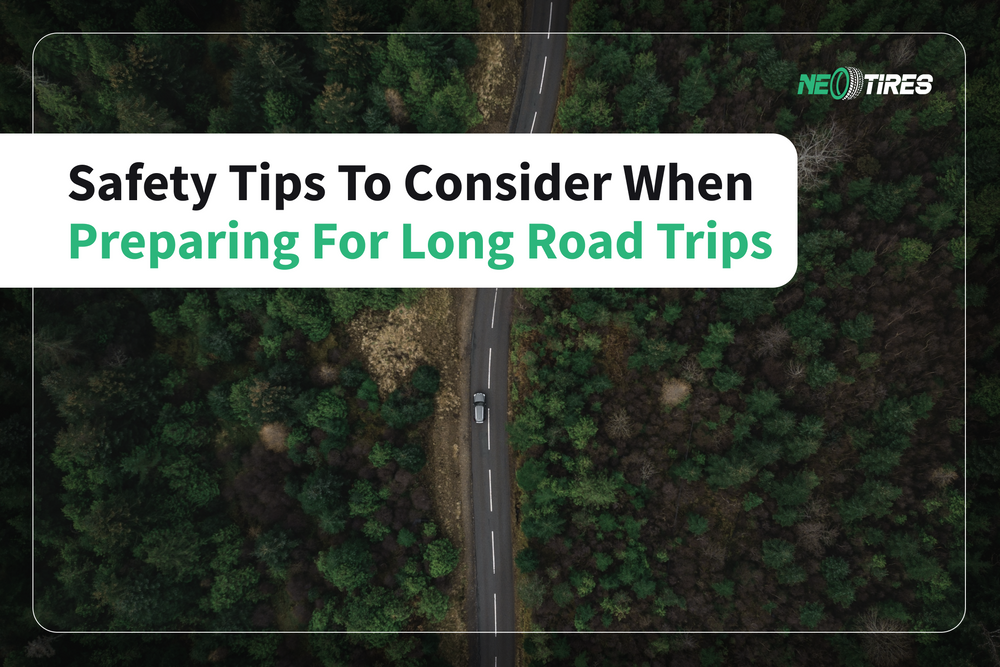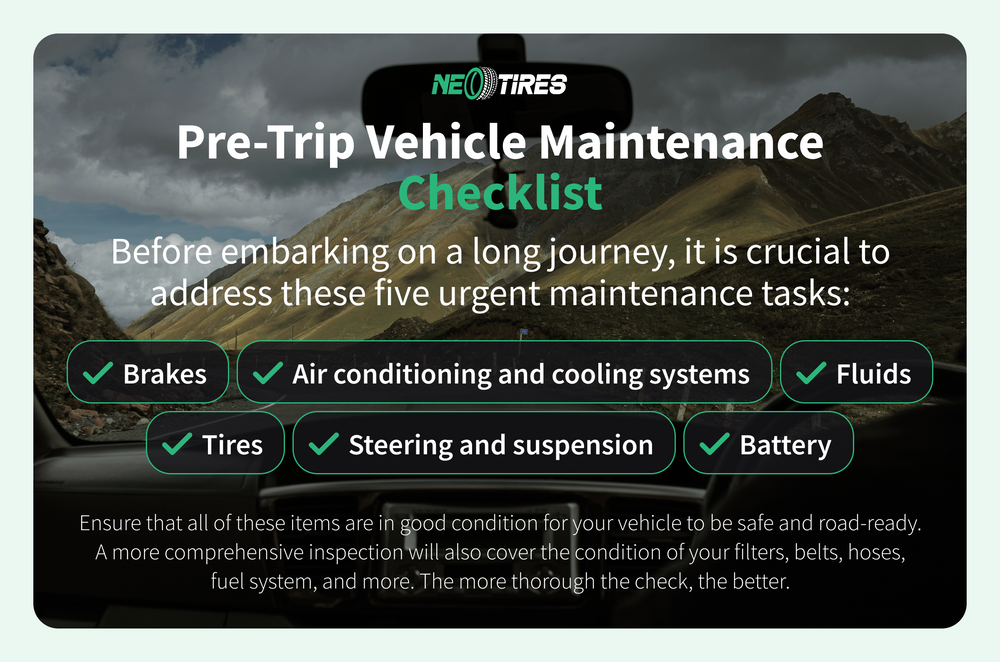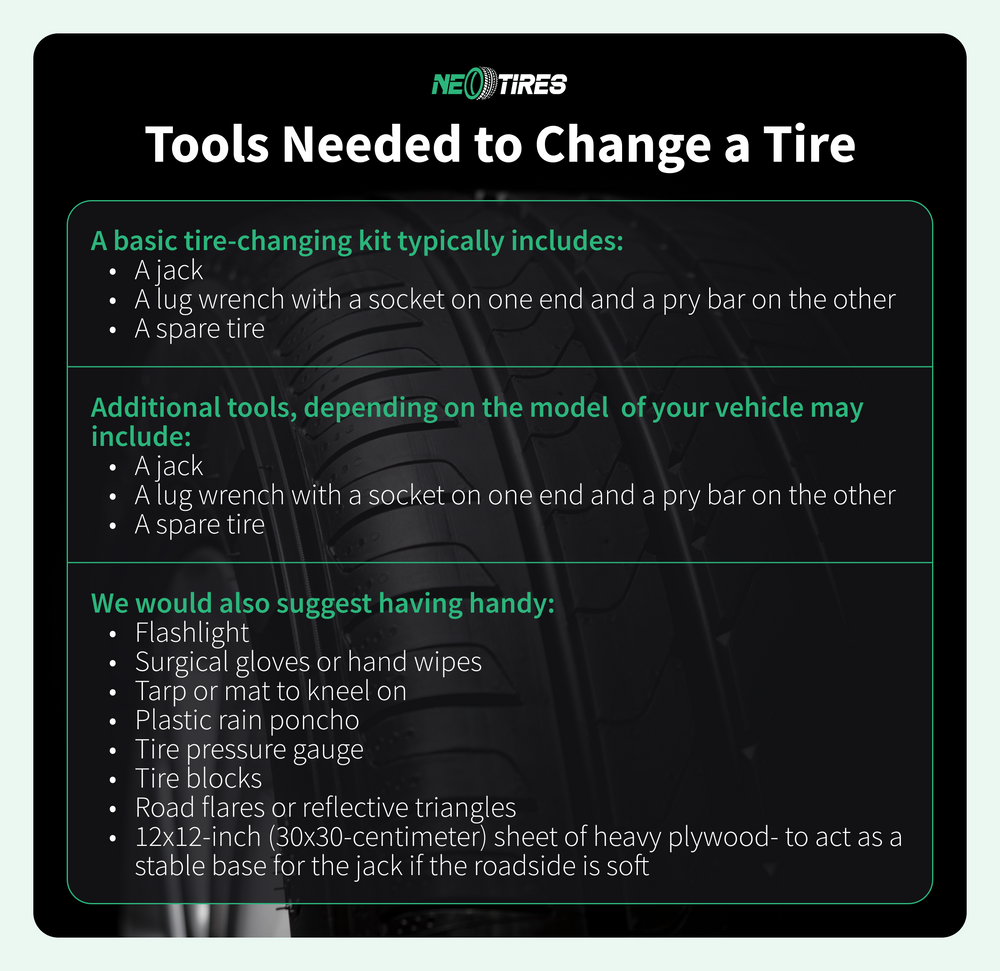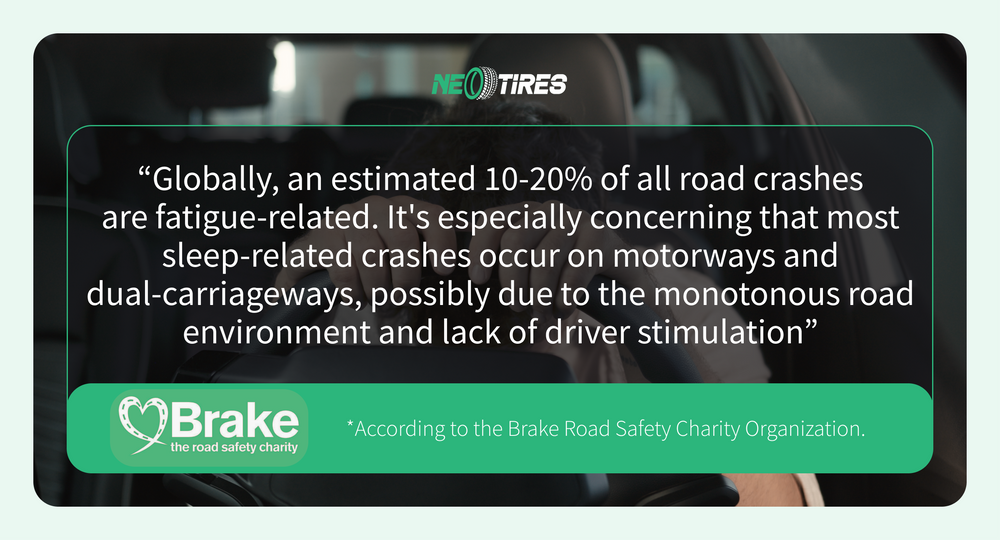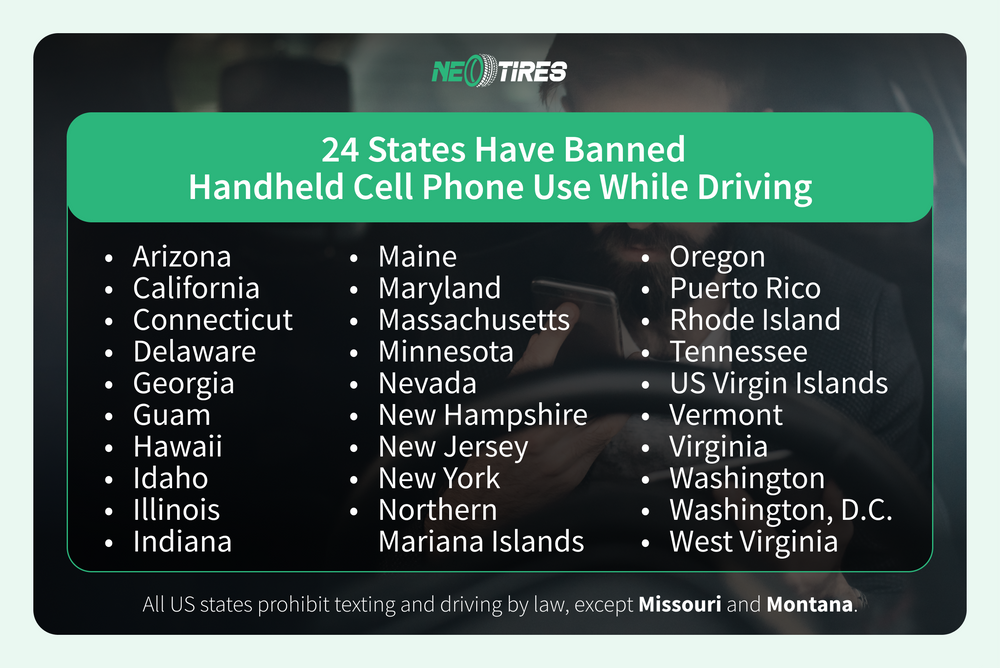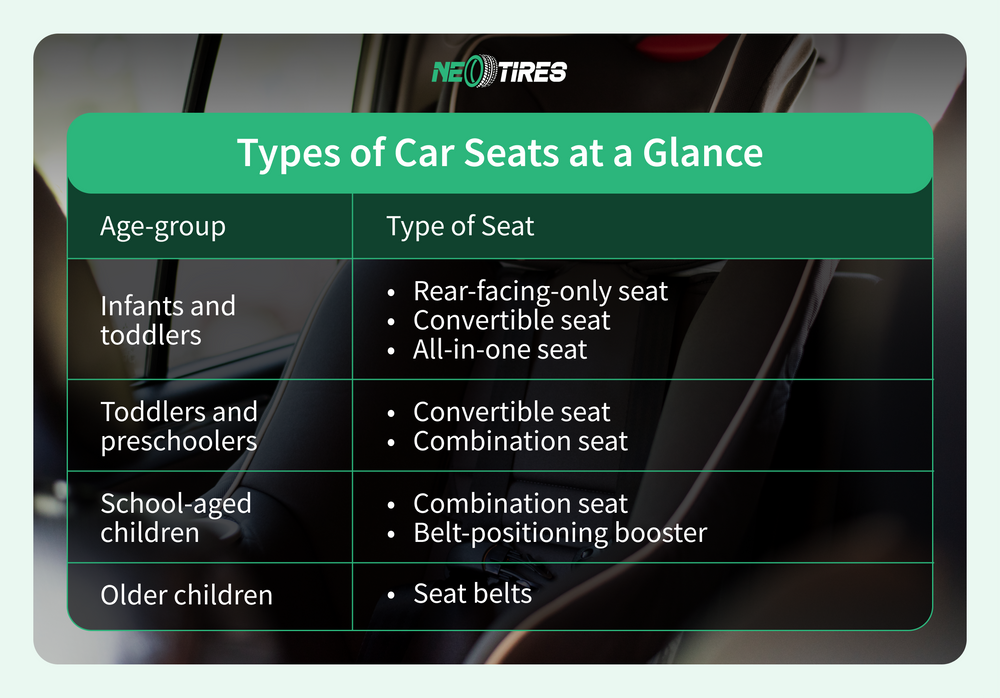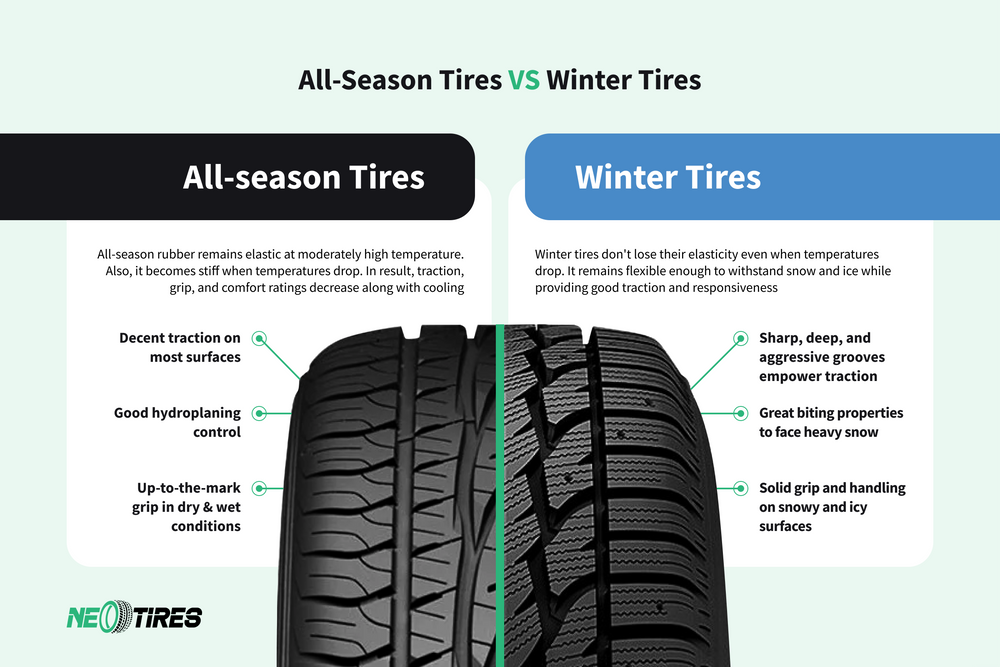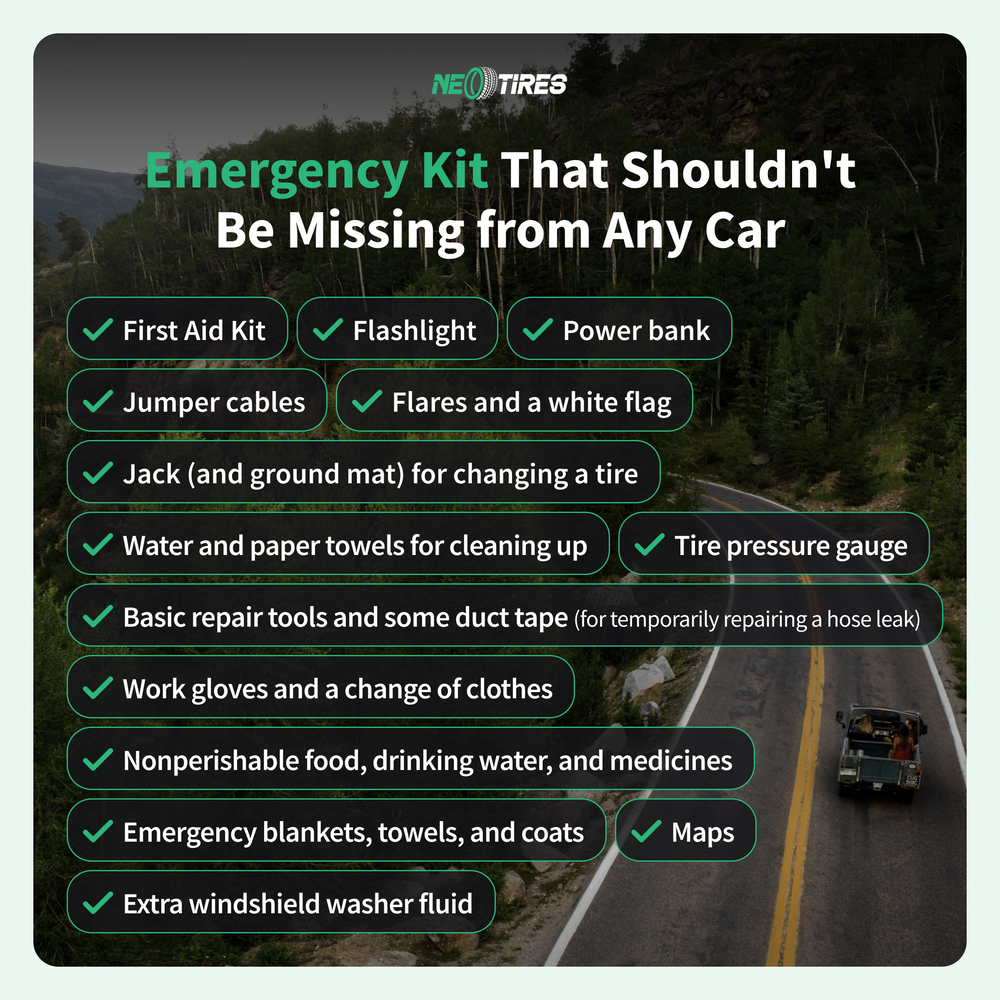Long road trips can be exciting experiences, but they also require careful preparation to ensure maximum safety. From packing essentials to full vehicle inspection, taking the right precautions helps to prevent unexpected breakdowns. In this section, you will find everything you need to help you prepare for a short or long trip so that no breakdowns interfere with your journey.
Prepare Your Car
Get your vehicle carefully inspected before any trip. For safety reasons, it's better to get your car checked by a professional. Make sure the following is in proper condition: brakes, air conditioning and cooling systems, fluids, tires, steering and suspension, and battery (for EVs).
Ask the mechanic to look and check in detail everything under the hood and all around the vehicle. If any issues are detected, these should be solved beforehand. According to NHTSA, about 2% of car accidents are attributed to vehicle components' failure.
Inspect Your Tires
Make sure your tires have enough tread and are suitable for the road you hit. Worn tires are one of the main causes of car crashes across the US. Make sure you have a spare tire unless you drive on run-flats. Learn how to change a tire. Talk to a mechanic or some professional who can help you with this.
Have The Spare Tire Changing Tools Ready
Make sure to have the tire replacement tool kit that includes a jack, lug wrench, wheel wedges, pressure gauge, and the owner's manual for precise instructions.
Safety Tips While Driving
Fasten The Seat Belts
The driver, as well as all the passengers in a car, must have their seat belts on, as it is law-prohibited to drive without a seat belt. Seat belts are one of the most effective safety measures to protect passengers during accidents. Their benefit is to reduce injury risks, prevent fatalities (by 45% for front-seat passengers), distribute force during a collision, and enhance airbag effectiveness.
Stay Vigilant
You, as a driver, should always have your eyes on the road. It is crucial to have a very good night’s rest and drive only when you’re 100% sure you can handle it.
Do not sit behind the steering wheel If you are tired. Falling asleep whilst driving is an imminent risk. Fatigue can be a premise for the driver to overlook road obstacles.
Tiredness and Drowsiness
Driver's tiredness and drowsiness are particularly dangerous because they reduce reaction time, can cause micro-sleeps, decrease driving focus, and impair judgment. To prevent tiresome and drowsy feelings, consider taking regular breaks while driving. Switching drivers or using resting stops can help restore vigilance and focus. Make sure to stay hydrated and nourished as hunger can exacerbate fatigue.
Reduce Distractions
Driver distractions are highly dangerous as they impair reaction time to road obstacles, reduce awareness, and compromise driving control. Be cautious with any type of distraction, including visual (e.g., checking phone messages), manual (e.g., eating or adjusting car screen), or cognitive (e.g., talking, singing).
Consider the following tips to reduce distractions for a smooth driving experience:
- avoid multitasking while driving
- silence your phone
- limit conversations with passengers
- reduce technology use
- stay mindful and aware
- park aside if any inconveniences appear rather than solving them whilst driving
Driving With Children
Driving with children can be particularly challenging as it requires extra care and attention. Make sure they have enough self-entertainment beforehand (travel-friendly games, drawings) to minimize interaction with you. Consider interactive strategies to keep children busy while you focus on the road. Ensure proper safety measures for them, including seat belts, child locks, and car seats. Pack their essentials beforehand (drinks, snacks, toys) and leave them within their reach.
Child's Car Seat
Make sure children have a proper car seat. Any sudden maneuver may cause injuries to your child in case he is not properly equipped in his car seat. For more children's safety on the road and the right ways to use a car seat, we encourage you to visit Healthy Children Org.
Keep A Safe Distance
Keeping a safe distance gives drivers enough time to react in front of a road obstacle or another vehicle breaking all of a sudden. In addition, this measure reduces collision risks and improves visibility to estimate the road condition and potential hazards ahead.
Weather Considerations
Watch out for the weather forecast. Especially if planning to cover long distances with varying weather conditions. The United States has a wide landscape with highly diverse weather. Weather apps on a cell phone can help forecast the weather conditions. Make sure to avoid driving in heavy storms or snow. Or, if so, make sure to equip the vehicle with the right winter tires, because all-season ones might not be the best for severe wintry conditions.
Have The Emergency Tools Ready
Having the Emergency tools handy can be life-saving. Make sure to equip your car with an emergency kit that you need to prepare beforehand. Usually, emergency kits contain first aid kits, blankets, reflective vests, flashlights, triangles, extra batteries for your phone, as well as lighters.
How To Prepare For Long Trips: FAQs
- Make sure that your vehicle is in optimal condition. Start with a car technical and mechanical inspection;
- Make sure the tires are in good shape. This refers to tread, pressure, and the correct tread pattern for the conditions in which you will drive;
- Equip yourself with a spare tire and all the necessary tools to replace it;
- Make sure you have all the required emergency kits;
- Don't start the journey only after you are well-rested. If the road is long, make sure you provide yourself with periodic rest.
Getting Ready for a Long Trip? Enssure Your Tires Are Road-Ready!
A safe trip starts with the right tires. If your tires aren't in optimal condition, it may be time for a replacement.
NeoTires can help you choose high-quality tires for safe and smooth trips. Explore our catalog or reach us to find the right products for comfort, performance, and longevity!
Why Trust NeoTires?
The NeoTires team is dedicated to improving the driving experience in all road and weather conditions. Our team comprises qualified professionals in the automotive industry who can guide you in any tire-related concerns, as tires significantly impact vehicle performance.
We can professionally help you select the perfect tires from the many products available on the market. Our goal is not merely to sell tires but to match the correct tires to each driver's unique needs. Drive safe and choose your tires wisely!




